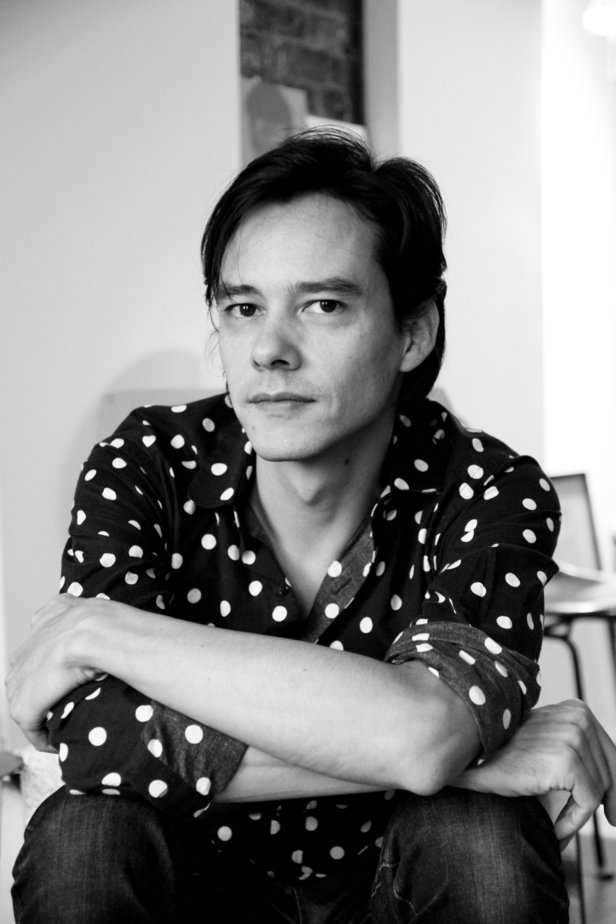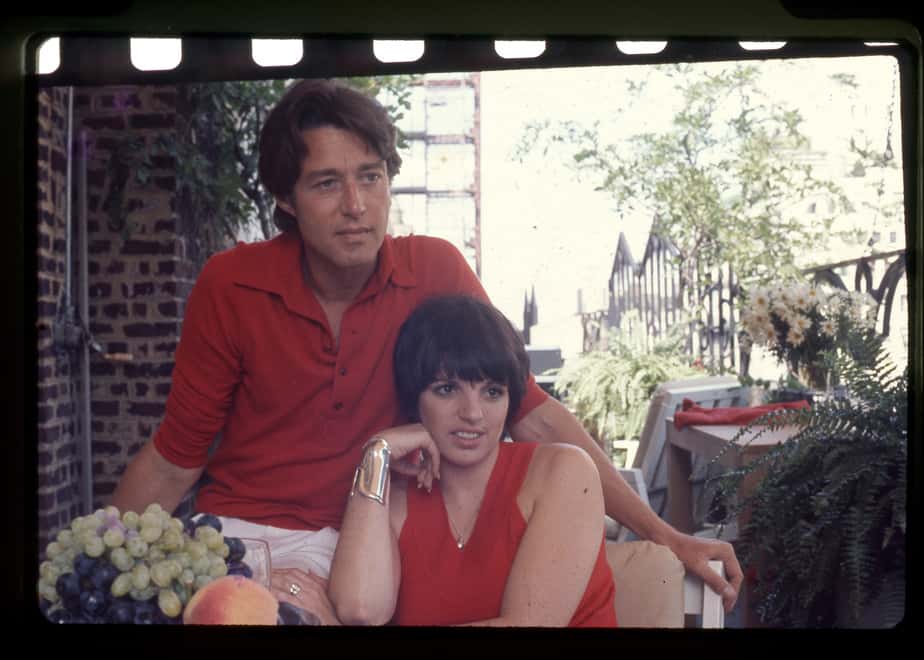We met at the Fairmont, perched above the city with views of San Francisco on a wildly windy day. Waves pummeled across the bay in thick sheets to the right of Tcheng’s hotel window. He snapped a few photos of the cityscape from his vantage point before talking shop with his producer, Roland Ballester, and myself. We hit the ground running, discussing the filmmaking process and lessons to be gleaned from Halston’s wildly colorful life as the first great American fashion designer rising to fame in the early 1960s.
It was a unique experience for Tcheng to grapple with a character from whom nothing needed to be exaggerated or heightened—the reality of Halston’s life already read like an outlandish script.
“It just felt like a story out of a storybook. As a filmmaker you’re always looking for a great story. Sometimes in documentary, you have to push the story a little further than it really is, you know, just to make it more dramatic. People’s lives usually are not like movies. But Halston’s life was exactly like a movie,” Tcheng laughed. “Halston’s life was bigger than a movie.”
While now he remains fascinated by the story of Halston, Tcheng admitted he didn’t immediately find the man so compelling of a subject when initially approached to take on the project.
“It was a very interesting process,” Tcheng explained. “I wouldn’t call it love at first sight. It was more, ‘I don’t understand this man,’ and then, ‘Oh, there’s this business story that is so compelling and resonates with me in a way I understand and I’m just starting to unpack.’ By the end of making this film, I’ve pulled so many layers of his personality and now I’m completely wowed by the scope of his life and achievements.”
Once the interest took root with Tcheng, the creative process then began. He searched for a foothold to start the narrative climb, ultimately wanting it to be a facet of Halston’s life that he could relate to on a personal level.
“It often starts with one image and that image stays in your brain, you can’t get it out,” Tcheng said.
With Halston’s story, that image was the erasing of the designer’s tapes upon Halston’s exit from his company in the mid-eighties, chased out by a massive corporate conglomerate. As a filmmaker, Tcheng explained that the thought of this visual record, Halston’s life’s work, being expunged from history in one quick action was so tragic that he couldn’t get the image out of his mind.
As Tcheng has directed and produced a handful of other critically-acclaimed fashion documentaries, he knew his way around this type of content. Ever the visionary, however, he aims to dig deeper in his retelling of major fashion icons, offering viewers insight not only into the lives of his subjects, but a glimpse of society at large as well.
“There is a sense that fashion isn’t very serious,” he admitted. “I’m always trying to make films that counter that idea. You can talk about very serious subjects and depict a moment in time of culture at large, not just fashion, through the lens of fashion.”
With “Halston,” this was a pivotal period of American history being covered, starting with the liberal, progressive 1960s and ending in the financially-crazed era of the 1980s. Tcheng saw an opportunity to pull from these political underpinnings as a way to explain the ultimate trajectory and influence of Halston’s empire.
“You can see the business landscape changing, but the political landscape too. I mean, Ronald Reagan arriving in power and what happened to Halston is very much a result of Reaganomics and the deregulation of the financial markets,” Tcheng explained. “And that’s something we really live with up to today. Trump is not doing anything different than what Reagan was doing. It’s a very interesting way to look at a large span of American history through the eyes of this American Designer. I mean, he dressed Jackie Kennedy, so you see the arrival of the Kennedys and this breath of fresh air in American politics [at the start].”
In a unique take on traditional documentary, Tcheng developed “Halston” as a business thriller, skillfully constructing the narrative around big punches, such as Halston’s rising popularity in the highest echelons of American celebrity circles, and later, the corporate takeover of Halston’s company. He also seamlessly weaves scripted reenactments to dramatize certain aspects of the story, a new tool he had never used before in his films.“If you do something that you feel you’re totally in control of, then you might as well just do something else.”— Frédéric Tcheng
“That’s what I love about film. If you do something that you feel you’re totally in control of, then you might as well just do something else,” he said. “It’s boring as hell, you have to be in that spot when you feel like you’re doing something new and something that you haven’t done before. And it has to feel risky. I think that’s something Halston would agree with. You have to live your life like that. If you do the same thing over and over, you’re not going to get anywhere. This was the most exciting cinematic challenge.”
While many of us seek out film as a form of escape, there is a larger, perhaps even more honorable role of film which surpasses that of a mere hiding place. It is a space in which human character, blunder, and truth is spelled out for us in a larger-than-life manner. It is an arena to learn about things we otherwise could never begin to understand.
“That’s the power of film, for 90 minutes you’re going to be in someone else’s shoes. Seeing the world from a different perspective; documentaries have allowed me to do that in a very powerful way. I could be traveling the world with Valentino or running ‘Vogue’ with Diana Vreeland. It’s a great opportunity to visit worlds that have disappeared.”
// “Halston” had its San Francisco premiere at SFMoMa on 4/20. The film will be released in select theaters in San Francisco and Oakland starting on June 14th; Feature photo of Frédéric Tcheng, courtesy of SFFILM.



